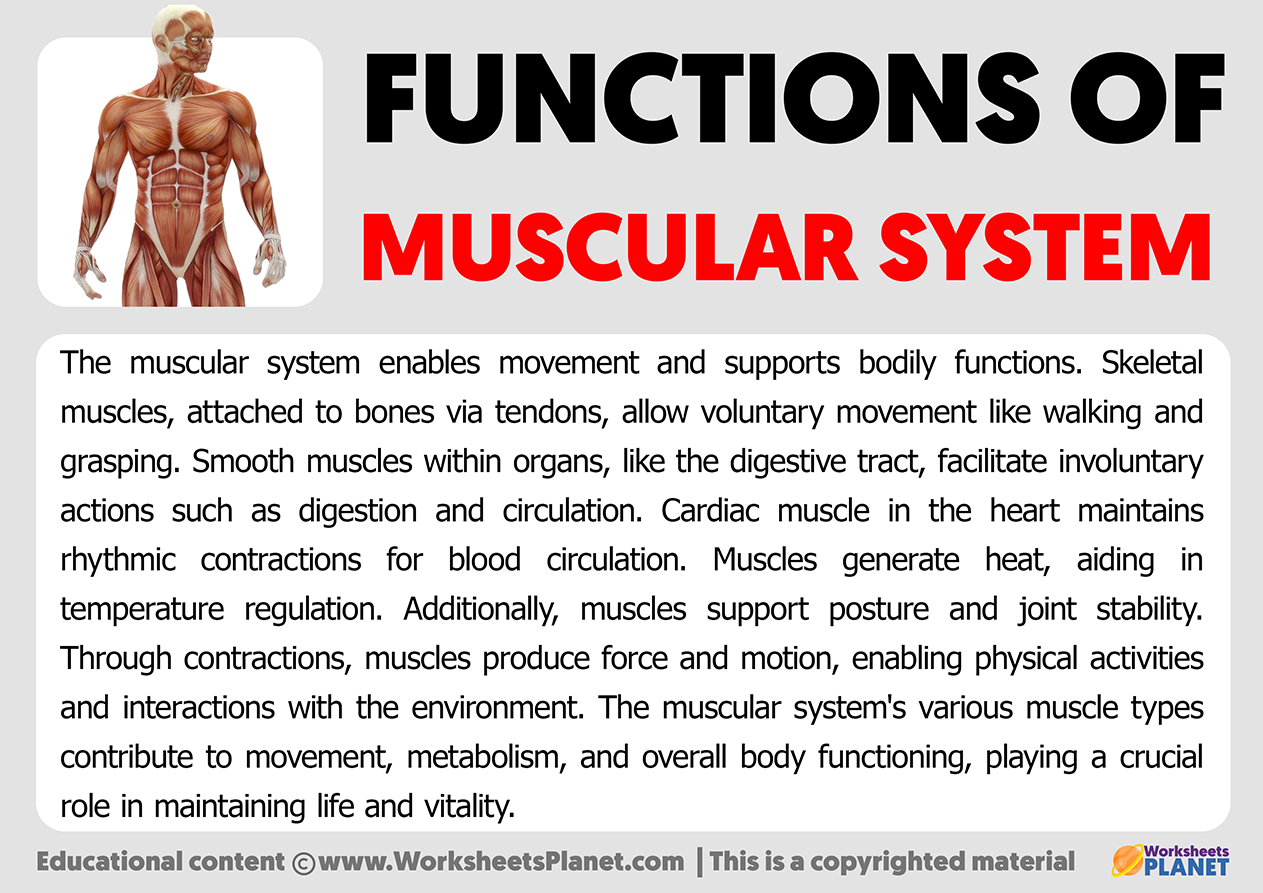The muscular system enables movement and supports bodily functions. Skeletal muscles, attached to bones via tendons, allow voluntary movement like walking and grasping.

Smooth muscles within organs, like the digestive tract, facilitate involuntary actions such as digestion and circulation. Cardiac muscle in the heart maintains rhythmic contractions for blood circulation.
Muscles generate heat, aiding in temperature regulation. Additionally, muscles support posture and joint stability. Through contractions, muscles produce force and motion, enabling physical activities and interactions with the environment.
The muscular system’s various muscle types contribute to movement, metabolism, and overall body functioning, playing a crucial role in maintaining life and vitality.

